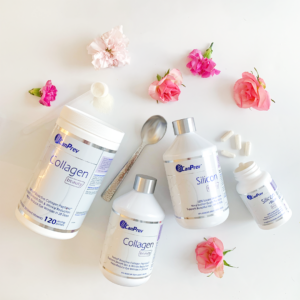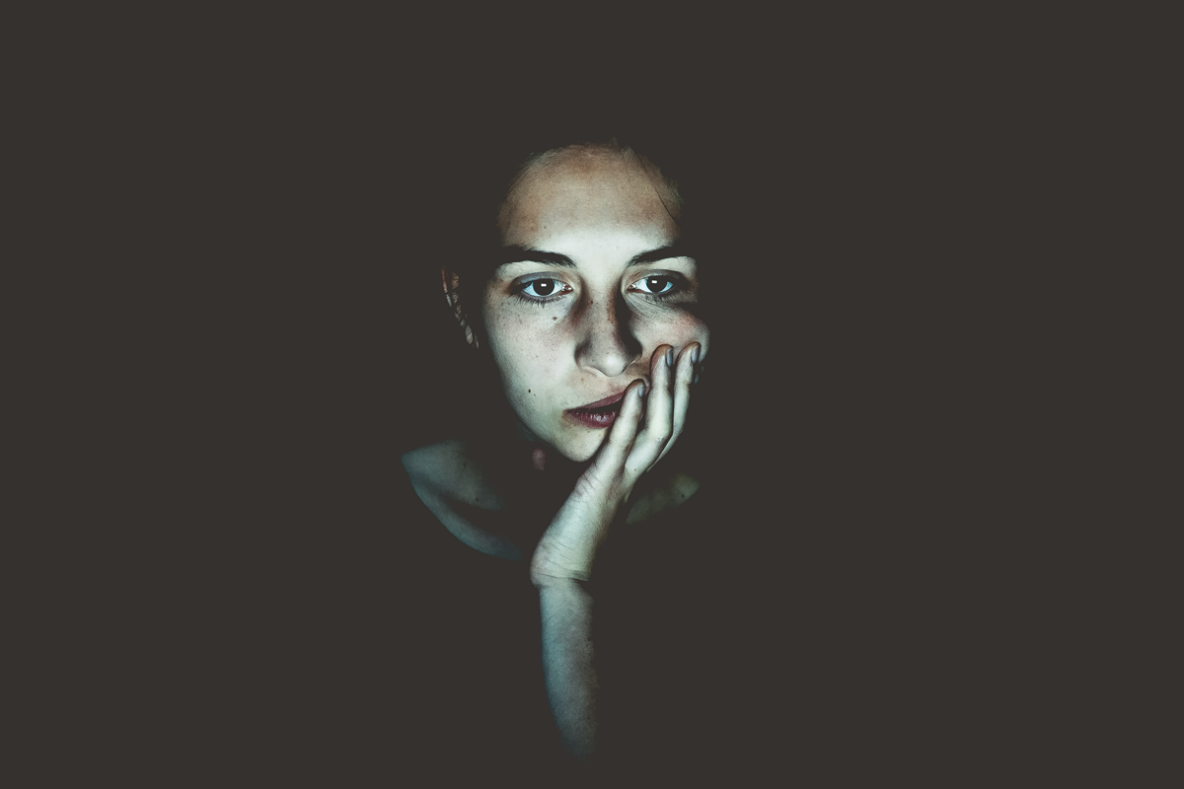Technology has become a major part of our daily lives. From online meetings and social media platforms to streaming services like Netflix and Disney Plus, screens are all around us. This means that we’re spending a lot more time staring at these screens. While you may be aware that screens can affect the wellbeing of your eyes, the same is true for your skin.
You read that right. Screen time can play a role in how healthy our skin looks and feels. Let’s dive into why that is, and what you can do to support your skin.
Introducing blue light
Whether it’s your phone, laptop, tablet, or TV, all of these screens emit something called blue light. Blue light is most known for disrupting our sleeping patterns. Our bodies rely on natural light to know when to produce the sleep hormone melatonin. When we increase our exposure to blue light through screens, our bodies can start to perceive this as natural light. Ultimately, this confuses our body’s internal clock, which is what throws off our sleep cycles.
How exactly does screen time affect the skin?
Just as the UV rays from sunlight can change the appearance of our skin, blue light can have a similar effect as well. While UV light is known to damage our cells’ DNA directly, blue light targets the collagen within our skin through oxidative stress.
A chemical in our skin called flavin absorbs the blue light, which produces unstable oxygen molecules or free radicals that go on to alter our skin’s composition. Blue light basically pokes holes in collagen and accelerates the aging process, which can result in changes like premature wrinkles and hyperpigmentation.
It’s important to note that proximity plays a factor in how much blue light can impact our skin. We will be exposed to lower amounts of blue light from our TVs when compared to our computers or laptops since we usually sit further away to watch TV. On the other hand, phones will cause more damage than laptops since they tend to be much closer to our faces.
What can you do to protect your skin?
While we may not be able to avoid blue light altogether, there are a few different changes we can make to our daily routines to help support our skin health. Here are some tips to get you started.
Change your screen habits
This may be a fairly obvious recommendation, but when you’re at work, make sure to take breaks so you’re not exposing your skin to screens for long periods of time. And when you get back home, try switching out watching TV or scrolling on your phone for something like reading a book or journaling.
Another tip that can help is to turn on ‘night shift mode’ on your devices to help create a warmer screen tone that will be less harsh on your skin (and your eyes!).
Wear sunscreen daily
Sunscreen not only protects your skin from UV light but blue light, too! Investing in a mineral sunscreen that contains iron oxides can help to protect your skin from any damage that blue light exposure can cause. Studies have shown that iron oxides are more protective against visible light sources like blue light, than zinc oxide or titanium oxide alone.
Nourish your skin from within
 Incorporating collagen-rich foods like bone broth or reaching for a supplement like Collagen Beauty can help reinforce your skin’s collagen. This formula features Verisol® Bioactive Collagen Peptides™ and is designed to stimulate fibroblast cells in the skin, to enhance collagen metabolism where it’s needed. It’s also clinically proven to help reduce eye wrinkles in as early as 28 days! It’s available in a powder or liquid form.
Incorporating collagen-rich foods like bone broth or reaching for a supplement like Collagen Beauty can help reinforce your skin’s collagen. This formula features Verisol® Bioactive Collagen Peptides™ and is designed to stimulate fibroblast cells in the skin, to enhance collagen metabolism where it’s needed. It’s also clinically proven to help reduce eye wrinkles in as early as 28 days! It’s available in a powder or liquid form.
If you’re looking for a vegan alternative to increase your collagen production, try our Silicon + Biotin Beauty. This formula contains LIVING SILICA®, which is a 100% soluble silicon source from quartz. LIVING SILICA® has been shown to be better absorbed by the body than other supplemental sources of silicon. It’s available in capsule or liquid form.
With technology becoming more prevalent in our lives, it’s important to understand the long term effects that screen time has on our skin health. Taking measures to limit your blue light exposure can help keep your skin thriving!
Sources:
What Is All of That Screen Time Doing to Your Skin?
The impact of blue light and digital screens on the skin
How blue light affects your eyes, sleep, and health
A novel method for evaluating sun visible light protection factor and pigmentation protection factor of sunscreens


